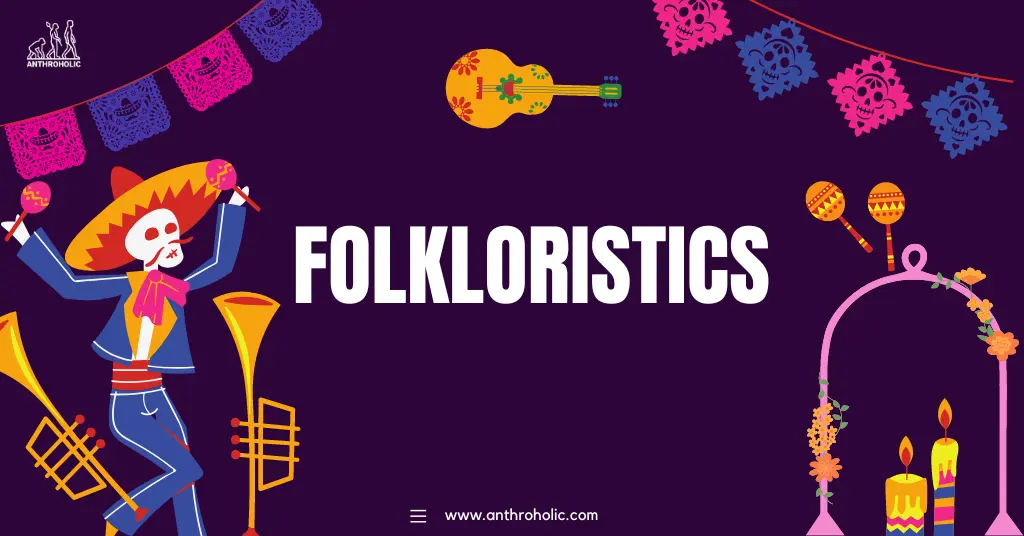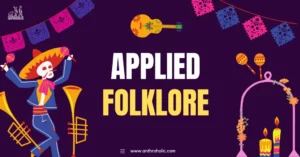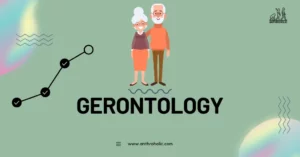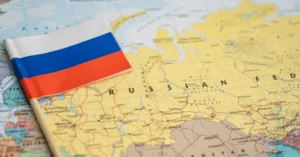AI Answer Evaluation Platform Live Now. Try Free Answer Evaluation Now
Folkloristics
Folkloristics, or the study of folklore, is an essential discipline within cultural anthropology. It involves investigating the traditions, stories, songs, dances, and other cultural artifacts that a group of people share, with the goal of understanding their cultural, historical, and social contexts [1].

What is Folkloristics?
In essence, folkloristics is a specialized study of folklore – the songs, stories, myths, dances, and customs shared among specific communities. It does not limit itself to the examination of ancient cultures, but includes contemporary society as well. The term ‘folklore’ was coined by the English antiquarian William Thoms in 1846, while the academic discipline of folkloristics emerged in the early 19th century in Europe, paralleling the rise of nationalism and the romantic idealization of “the people” [2].
Key Elements of Folkloristics
The study of folkloristics encompasses various elements:
- Oral Traditions: These include myths, legends, fairy tales, riddles, proverbs, and other forms of verbal art.
- Material Culture: This refers to physical objects, like tools, clothing, and homes, that reflect cultural values and practices.
- Customs and Rituals: This includes dances, music, games, festivals, and rites of passage that express community identity.
- Folk Beliefs: These are traditional ideas about natural and supernatural phenomena [3].
The Importance of Folkloristics
Folkloristics is crucial in the following aspects:
- Cultural Preservation: Folklore represents the collective memory and wisdom of a community. Folkloristics helps to document and preserve this cultural heritage.
- Cultural Understanding: By studying folklore, we can gain insights into a group’s history, beliefs, values, and worldviews. This leads to a deeper understanding and appreciation of diverse cultures.
- Social Cohesion: Folklore can promote social cohesion by reinforcing shared identity and traditions [4].
Methods and Approaches in Folkloristics
Folklorists use various research methods:
- Fieldwork: This involves direct observation and participation in the community’s cultural activities. It often includes interviews and collecting artifacts.
- Archival Research: Folklorists use historical documents, audio-visual materials, and existing collections of folklore in their investigations.
- Comparative Analysis: By comparing folklore across different communities, folklorists can identify patterns, variations, and influences.
Challenges in Folkloristics
The study of folklore also faces several challenges:
- Cultural Sensitivity: Researchers must be careful not to exploit or misrepresent the communities they study.
- Changing Traditions: As societies evolve, traditions change. It can be difficult to distinguish “authentic” folklore from recent inventions.
- Contextual Understanding: The meaning of folklore often depends on local context, which outsiders may not fully understand.
Folkloristics Around the Globe: A Comparative Overview
To better understand the diversity and commonality of folklore worldwide, let’s look at the following examples:
| Country | Folklore Example |
|---|---|
| United States | Native American oral tradition, Cowboy ballads |
| Ireland | Leprechaun legends, traditional music and dance |
| Japan | Samurai tales, tea ceremony |
| India | Ramayana and Mahabharata epics, festival rituals |
| Nigeria | Yoruba proverbs, masquerade festivals |
These examples demonstrate that while the forms of folklore may differ greatly, the role it plays in each culture—to carry forward tradition, to impart wisdom, to entertain—is universal.
Conclusion
In conclusion, folkloristics is an essential discipline that helps to uncover and preserve the richness of our global cultural heritage. It provides invaluable insights into our shared humanity and the diverse ways in which we make sense of the world. Despite the challenges, the rewards of studying and understanding folklore make it a critical field within cultural anthropology.
References
[1] Dundes, A. (1980). Interpreting Folklore. Indiana University Press.
[2] Noyes, D. (2016). The Practice of Folklore: Essays toward a Theory of Tradition. University Press of Mississippi.
[3] Geertz, C. (1973). The Interpretation of Cultures: Selected Essays. Basic Books.
[4] Ben-Amos, D. (1971). Toward a Definition of Folklore in Context. Journal of American Folklore.




